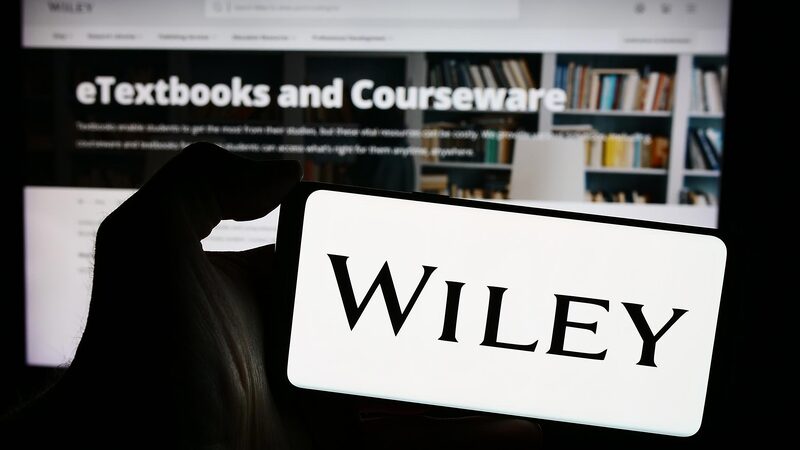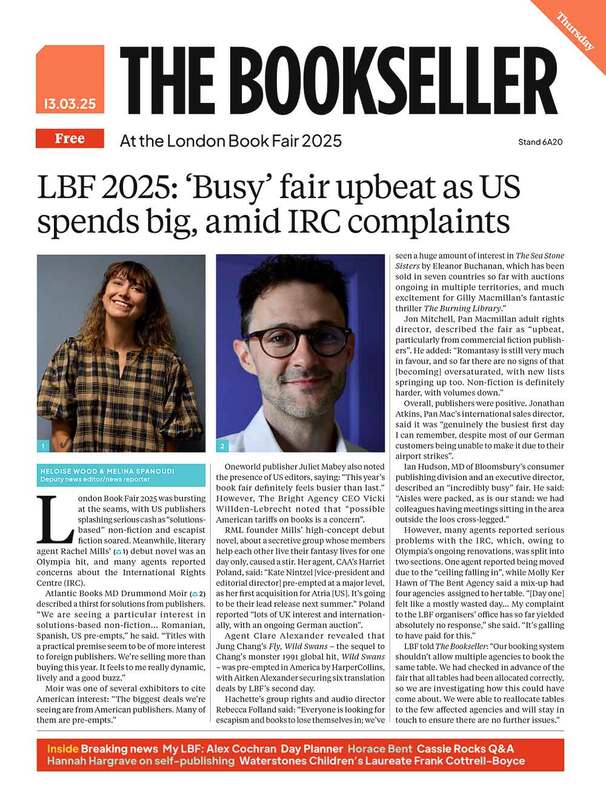You are viewing your 1 free article this month. Login to read more articles.
Booksellers warn publishers over direct selling at APS
Direct-selling to institutions by publishers proved a thorny issue at the Bookseller Association's Academic, Professional and Specialist conference in Brighton yesterday (12th March).
Giving a welcoming address at the event at the Old Ship Hotel, Dan Johns [pictured], the chairman of the BA's academic group, warned he would stop providing publishers with vital information if they continued to sell directly to universities.
The owner of independent academic bookshop The University Bookseller, Plymouth, said the practice was like "self-killing" by publishers because it damaged the important and long-established relationships which have existed between publishers, booksellers and universities and undermined the market as a whole. "We have had great support in Plymouth from publishers so thank you for that - it has been a great year for you guys (publishers) and your reps," he said. "However, I am aware that the relationship is being undermined by direct selling. It is incredibly short sighted. If I cannot put my trust in a publisher or a publisher's rep, I will simply not communicate. I will order my books, but I will not tell you anymore than that. I need to know any information I give to you is not being used to get direct e-book sales."
He added that the quality of academic e-books needed to be better if they were to become more popular with students. "We need to supply the student with whatever they want, how they want it and for me the quality of the e-book isn't there yet," he said.
David Prescott, c.e.o of Blackwell's also raised the direct-selling issue as something that kept him "awake at night" in a panel session posing that question. Roger Horton, c.e.o of Taylor and Francis, meanwhile, answering a question from the floor about why publishers would want to sell directly to institutions said his company wasn't doing it, but added: "We will sell to those who want to buy our product but we will do it in a way that it doesn't damage those people already involved in selling it."
Richard Mollet, c.e.o of The Publishers Association said on the subject: "We will reiterate the point at our meetings with publishers but there is some experimentation with the business model going on at the moment."
Prescott also used the panel to appeal to publishers not to fall down on their promises to make sure the right book was available "in the right place at the right time." He said: "Sadly this concern has been keeping many academic booksellers in the room awake for a number of years but really doesn't show much sign of improvement. There remains an institutional failure on the part of some to plan realistically what they can achieve and deliver on time... this inability costs booksellers thousands and thousands in lost revenue. You never get a chance to make that money back."
Mollet said that "copyright saboteurs" troubled him, along with open access and people believing that published work should be available for free. Horton, meanwhile, said that losing "control of and control over the pricing of the content we are charged with looking after and adding value to" worried him. The Booksellers Associaion c.e.o Tim Godfray said he fretted over e-lending by libraries damaging booksellers' business models, libraries selling books and dips in the stock market which he said always affected the market "in a big way."
The issue of Amazon's dominance in the industry was also raised, with Prescott saying that while he wasn't "having a bash at" the company itself, he thought the competition authorities, namely the Office of Fair Trading, had "singularly failed to see that Amazon's 80-90% dominance of the e-book market in the UK posed any sort of short to medium term dangers for our industry as a whole and by extension their customers".
Professor Clare Mackie, pro vice chancellor in charge of teaching and learning at the University of Sussex, meanwhile, provided publishers and booksellers some positive news when she revealed that student numbers were set to grow this September, when a government cap on the number of students universities could take was partially lifted and again the following year when it was lifted altogether. She said: "There is an opportunity for the market to grow with 30,000 more students being accepted this September and in 2015-16 when the cap is taken off altogether. By 2018, we expect to see 1.5m more students in the sector, which is great news for publishers and booksellers."
However, Mackie warned that a recent focus on undergraduate students meant people enrolling in postgraduate study had "plummeted". New Home Office regulations around student visas were also having a "great impact on the sector", which was potentially damaging for the market, Mackie warned.

















